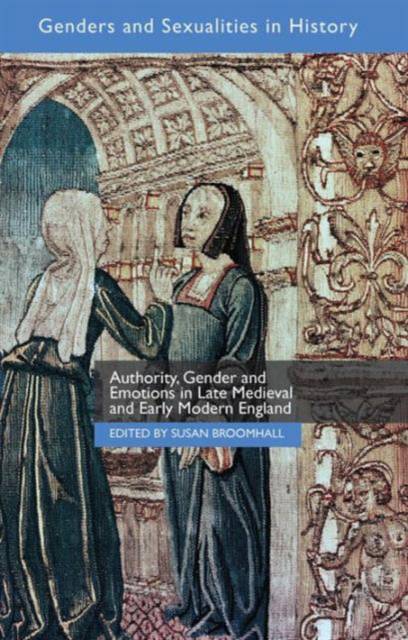
Bedankt voor het vertrouwen het afgelopen jaar! Om jou te bedanken bieden we GRATIS verzending (in België) aan op alles gedurende de hele maand januari.
- Afhalen na 1 uur in een winkel met voorraad
- Gratis thuislevering in België vanaf € 30
- Ruim aanbod met 7 miljoen producten
Bedankt voor het vertrouwen het afgelopen jaar! Om jou te bedanken bieden we GRATIS verzending (in België) aan op alles gedurende de hele maand januari.
- Afhalen na 1 uur in een winkel met voorraad
- Gratis thuislevering in België vanaf € 30
- Ruim aanbod met 7 miljoen producten
Zoeken
Authority, Gender and Emotions in Late Medieval and Early Modern England
Susan Broomhall
€ 152,95
+ 305 punten
Omschrijving
This collection explores how situations of authority, governance, and influence were practised through both gender ideologies and affective performances in medieval and early modern England. Authority is inherently relational it must be asserted over someone who allows or is forced to accept this dominance. The capacity to exercise authority is therefore a social and cultural act, one that is shaped by social identities such as gender and by social practices that include emotions. The contributions in this volume, exploring case studies of women and men's letter-writing, political and ecclesiastical governance, household rule, exercise of law and order, and creative agency, investigate how gender and emotions shaped the ways different individuals could assert or maintain authority, or indeed disrupt or provide alternatives to conventional practices of authority.
Specificaties
Betrokkenen
- Auteur(s):
- Uitgeverij:
Inhoud
- Aantal bladzijden:
- 229
- Taal:
- Engels
- Reeks:
Eigenschappen
- Productcode (EAN):
- 9781137531155
- Verschijningsdatum:
- 9/07/2015
- Uitvoering:
- Hardcover
- Formaat:
- Genaaid
- Afmetingen:
- 142 mm x 216 mm
- Gewicht:
- 453 g

Alleen bij Standaard Boekhandel
+ 305 punten op je klantenkaart van Standaard Boekhandel
Beoordelingen
We publiceren alleen reviews die voldoen aan de voorwaarden voor reviews. Bekijk onze voorwaarden voor reviews.









